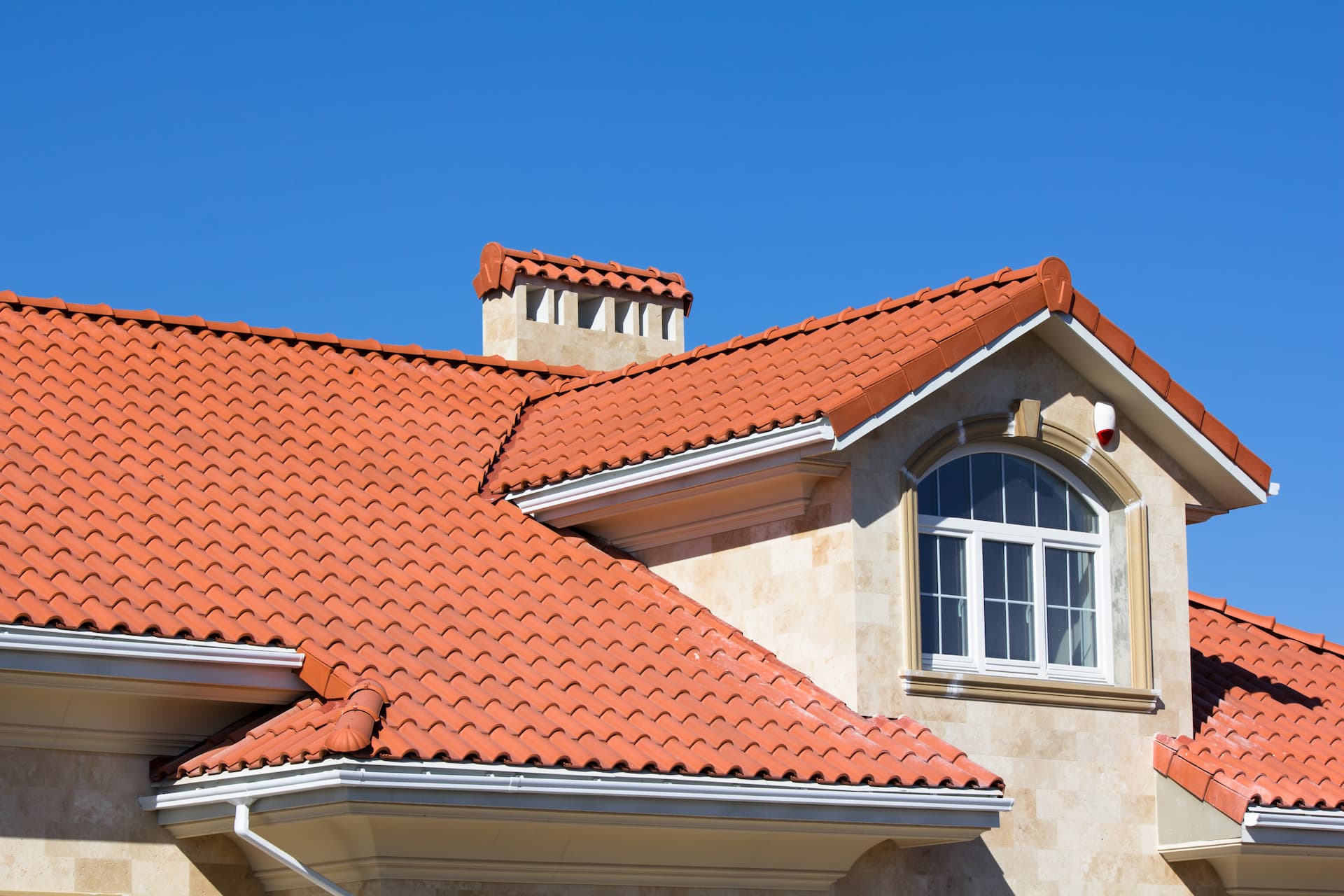
What Are The Most Common Types of Roofs in Florida?
GET A FREE INSPECTIONFree Roof Inspection
In this article, we’ll take a closer look at the most common roofing styles and materials in Florida. We’ll also tackle their pros & cons, and discuss which roofing system can withstand the extreme heat and storms that are common throughout this state.
Asphalt Shingles
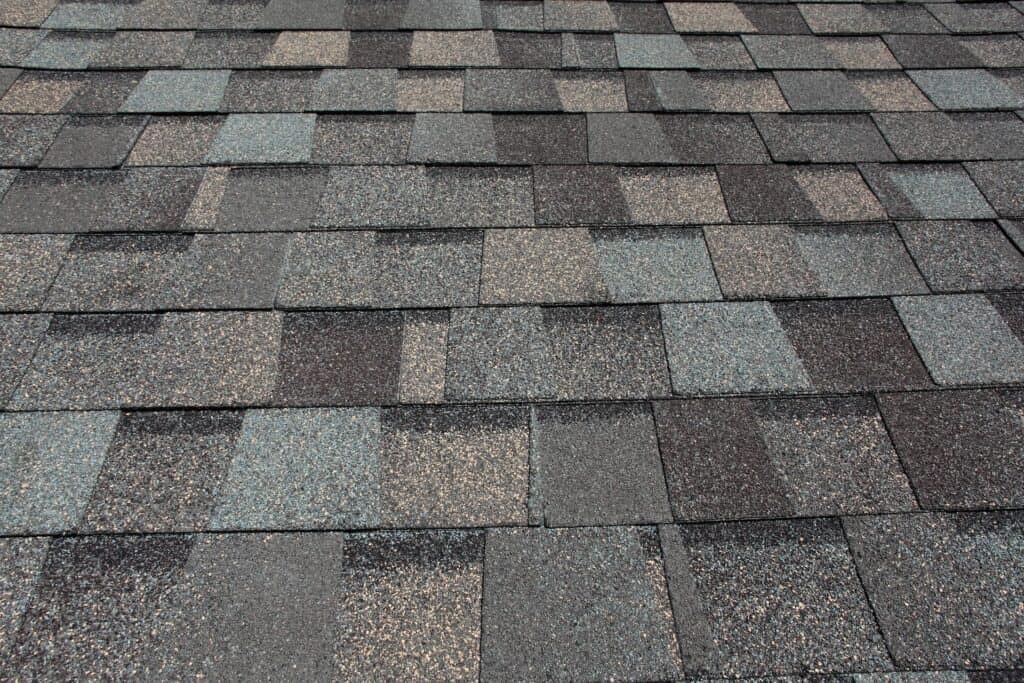
The most common type of roofing in Florida is asphalt shingles. They’re attractive, affordable, and can match almost any home style and design.
Despite the attractiveness and popularity of shingle roofing, asphalt shingles do have limitations. For one, they’re lightweight and don’t stand up to strong winds, storms, and hurricanes as well as some other types of roofing.
Asphalt shingles also have limited longevity (relative to other materials) and are prone to degradation, curling, and cracking, especially in the hot Florida climate.
With that said, a shingle roof in Florida can easily last 15+ years, given there is no storm activity.
Metal Roofs
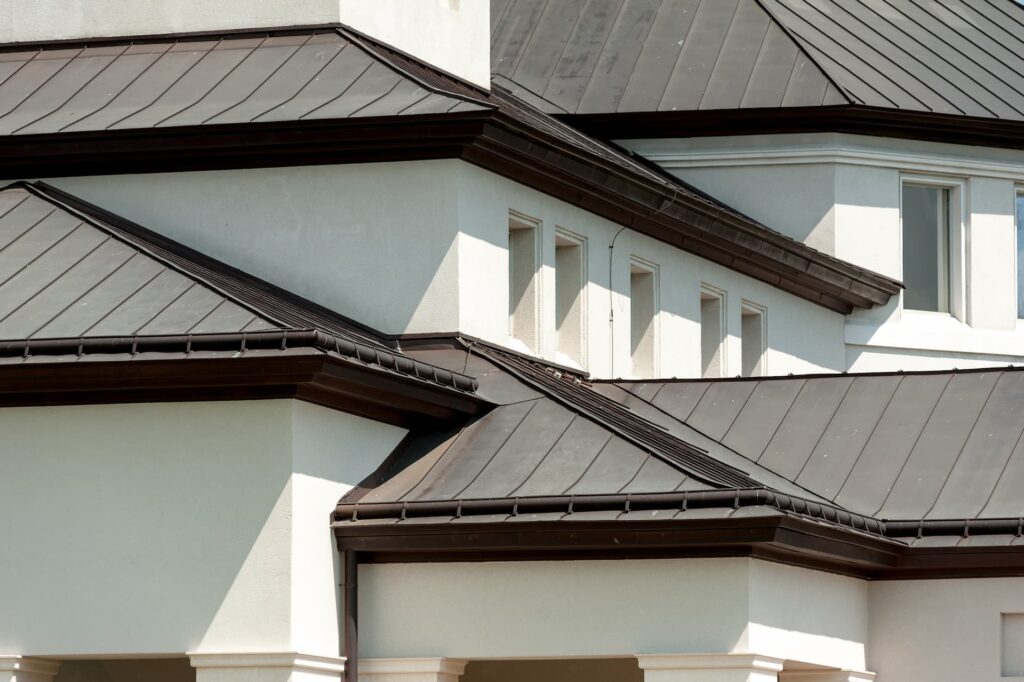
One of the most useful innovations in the roofing industry is the development of metal roofs. They’re a great alternative to asphalt shingles because of their enhanced durability and longevity.
The best feature of metal roofs is their ability to endure strong winds up to 160 mph. They’re perfect for communities that experience regular storms and hurricanes in Florida. Even better, sunny areas can also benefit from this roofing material because of its ability to reflect sunlight and provide additional insulation for a more comfortable home.
Some of the downsides of metal roofs are their expensive cost and complicated installation. While they’re more costly than shingles, they have enhanced durability to show for it.
Concrete Tile Roofs
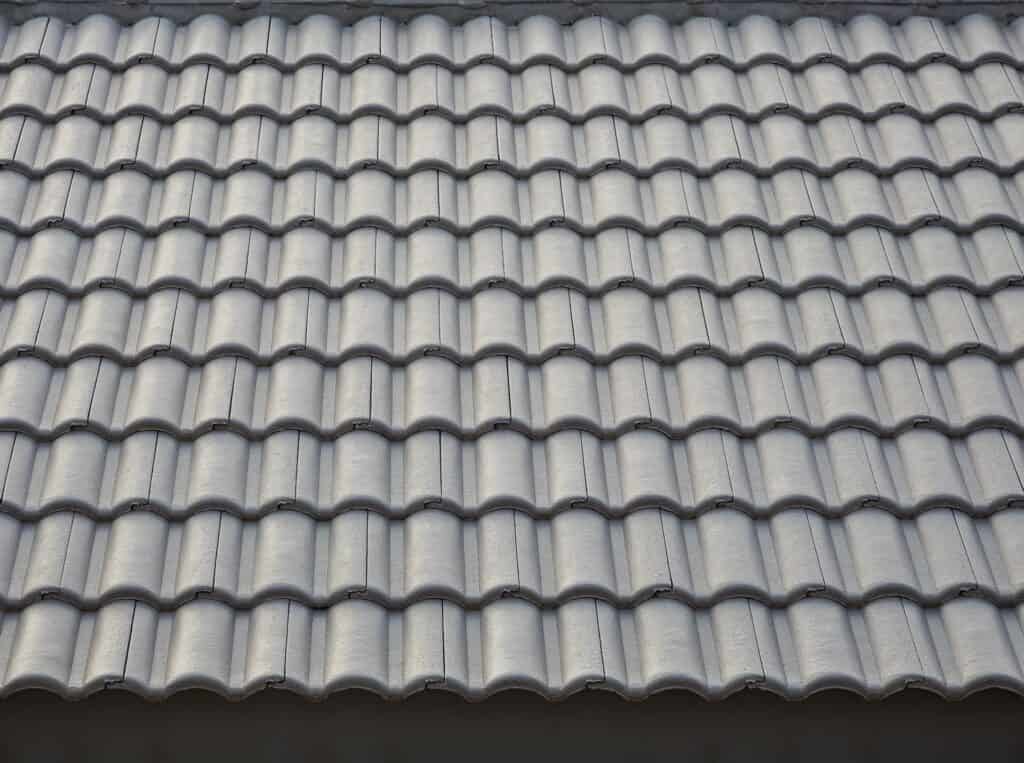
Another common type of roof in Florida is the concrete tile roof. Tile roofing is more expensive than shingle and metal roofing but provides remarkably high longevity, lasting up to 50 years.
Clay Tile Roofs
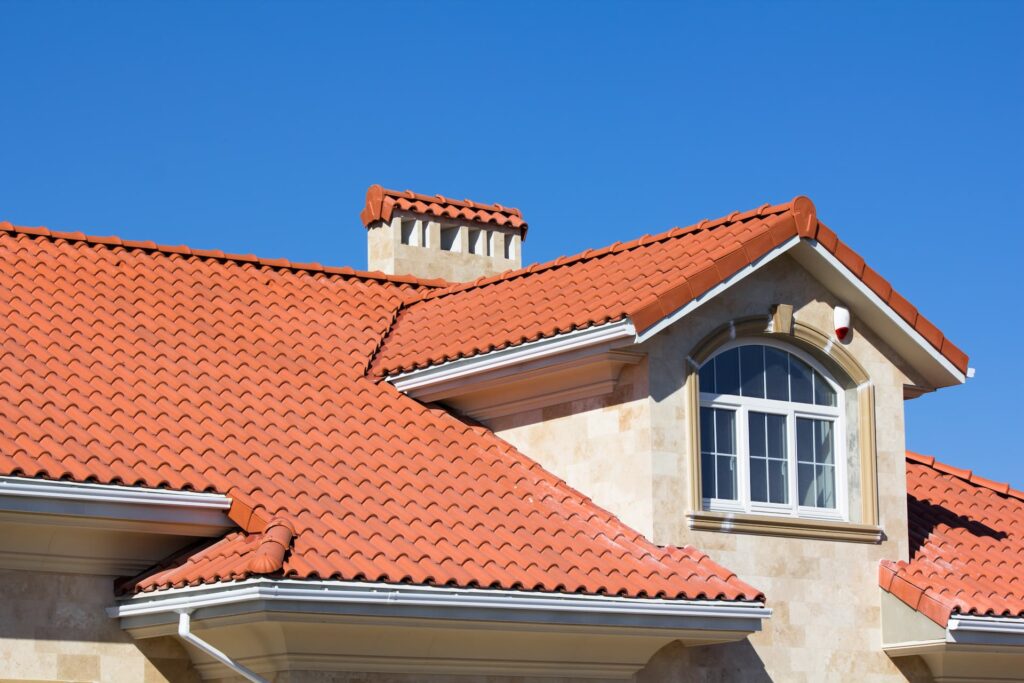
The best type of roofing you can choose – if you have the structural support – is clay tile roofing. Clay tiles are the classic type of earthy-toned roof you might expect to see across Florida.
Clay tile roofs can easily last 25 to 50 years and often longer if well-maintained. They are also resistant to fading, so they keep their nice look for a very long time.
Clay tile roofs are also highly resistant to both strong winds and water.
The one downside to clay tile roofs, aside from their more expensive price tag, is that they can crack easily when hit with falling debris. In some cases, an inspector walking on your roof can even crack a tile on accident. This is why we recommend drone roof inspections for tile roofs.
Slate Tile Roofs
Although slate tile roofs aren’t as common in Florida, some homeowners still prefer this roofing material because of its benefits and high longevity. They’re easily customizable and environmentally friendly compared to other roofing materials. They’re also resistant to mold.
But since slate tile roofs consist of rocks, they’re very heavy. Putting too much pressure and weight on them can also cause cracks. You’ll also need to ensure that your house’s foundation is sturdy enough to keep them intact. On top of that, replacing this roofing system may be more challenging due to its low availability in Florida.
Wood Shake and Shingle Roofs
Wood shake and wood shingle roofs are more common in inland communities in Florida. They give off a beautiful and natural look compared to other roofing materials. They’re also recyclable and environmentally friendly.
Although they’re more expensive than asphalt shingles, wood shakes and shingles are still more affordable than metal and tile roofs. They’re also highly customizable because you can purchase various wood types to match your home’s overall aesthetic.
Wood shakes and shingles also have several downsides you may want to consider. You’ll need to take extra precautions to maintain the integrity and look of this roofing system. Additionally, they can’t withstand hurricanes very well and may even blow off in the presence of strong winds.
The Importance of Choosing the Right Roof Type
The extreme weather and heat in Florida makes it important to put extra consideration into the type of roofing for your home. Here are some key factors that should influence your decision. Of course, if you ever need help with roofing decisions, don’t hesitate to reach out to us.
Roof Replacement Costs
Don’t just look at the overall cost of a new roof. Make sure you consider how soon it’ll need to be replaced or how likely it is to get damaged in a storm.
If you choose inexpensive roofing materials, you’ll undoubtedly need a roof replacement much sooner as cheaper materials don’t last nearly as long (especially in Florida).
Aesthetics
Weather and climate are important to consider, but so is curb appeal. You want your home to look great, right? Lots of people put a lot of weight into aesthetics when choosing their roof style.
Resale Value
A final point to consider is the resale value of your home. If you live in an area of Florida that has mostly tile roofing and you have shingle roofing, your home is going to be less desirable. If you go with a more funky and less mainstream type of roof style, your home will appeal to fewer people. Take these factors into consideration before making a final decision.
Also See: Average Roof Replacement Cost in Florida
Roofs Built for Hurricane Force Winds
Florida is prone to hurricanes, so we should probably discuss how that relates to each type of roof. Remember, hurricanes don’t just bring high winds – they come with lots of rain, thunderstorms, tornadoes, and flying debris.
What are the Best Roofs for Hurricanes in Florida?
Out of the six common roofing types in Florida, the most effective roofing for hurricanes are metal, concrete, and clay tile roofs. Metal roofs can endure strong winds up to 160 mph, followed by concrete and clay tile roofs. Both these tile roofs are heavy enough to remain intact in the presence of powerful winds.
When it comes to flying/falling debris, all roofs struggle in different ways. Metal roofs can dent, tiles can break, and shingles can crack. The upside to tile roofs, however, is that broken tiles are easily replaced, so long as the replacement tiles can be found.
How Long Do Roofs Last In Florida?
The lifespan of a roof in Florida can vary depending on several factors, including the type of roofing material, weather conditions, and maintenance. Here are some estimated lifespans for common roofing materials in Florida:
- Asphalt shingles: 15-30 years
- Metal roofing: 40-70 years
- Tile roofing: 50-100+ years
In Florida, the hot and humid climate can shorten the lifespan of a roof. High temperatures, frequent rainstorms, and exposure to saltwater can cause damage to the roof and accelerate wear and tear. Additionally, hurricanes, tropical storms, and strong winds can cause severe damage to roofs and reduce their lifespan.
What’s Next?
Are you needing help with the decision making process? Considering a roof replacement?
At RoofClaim, we handle all your roofing needs from start to finish. Our team consists of licensed and highly qualified roof contractors with years of experience in roof replacements, repairs, and installations. Schedule a free roof inspection with us today to get started.

